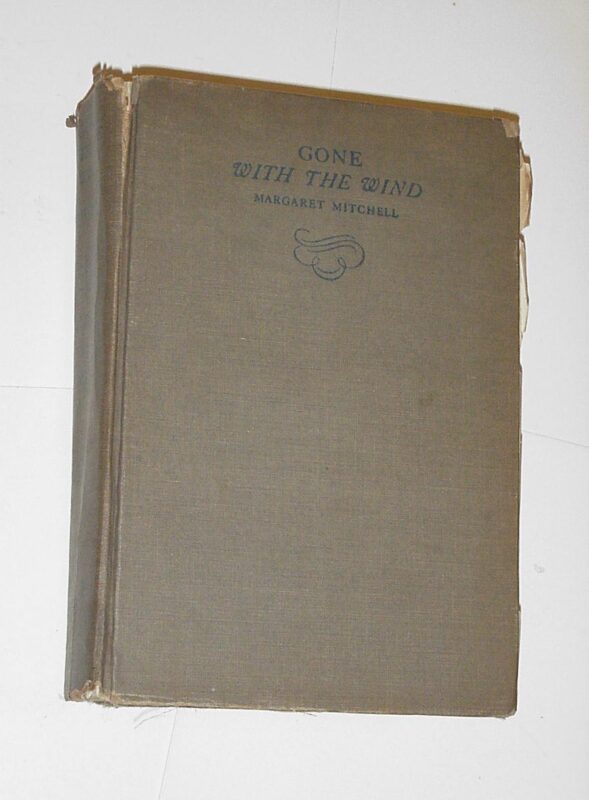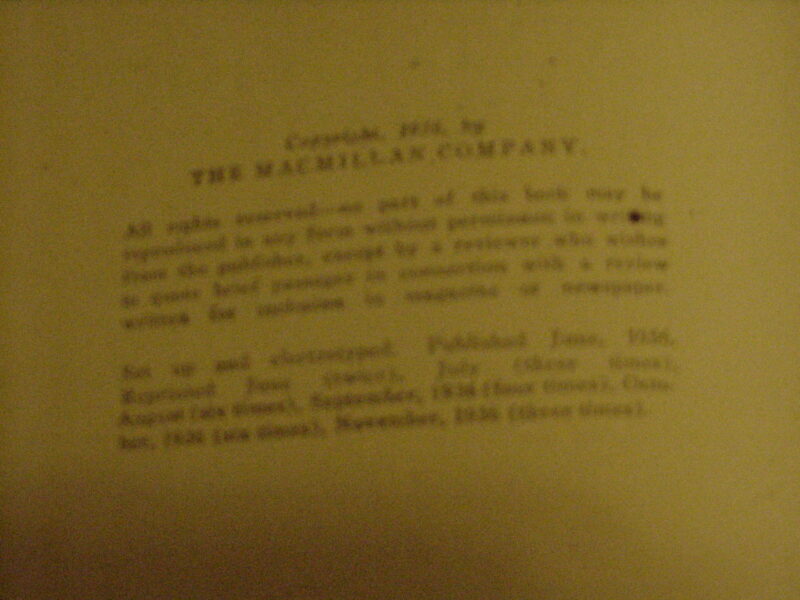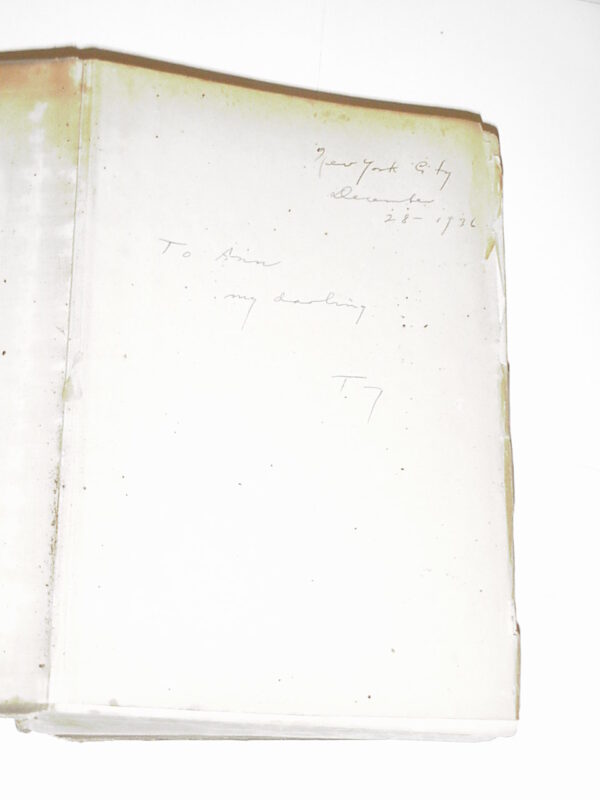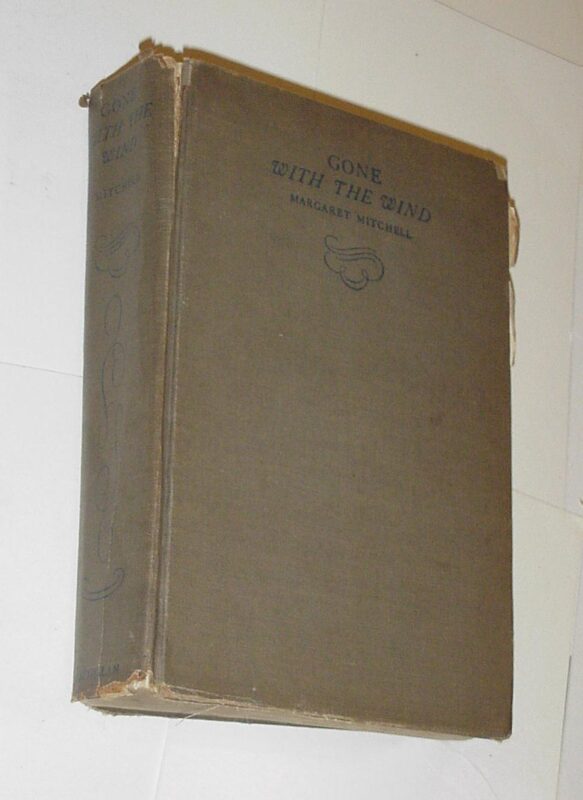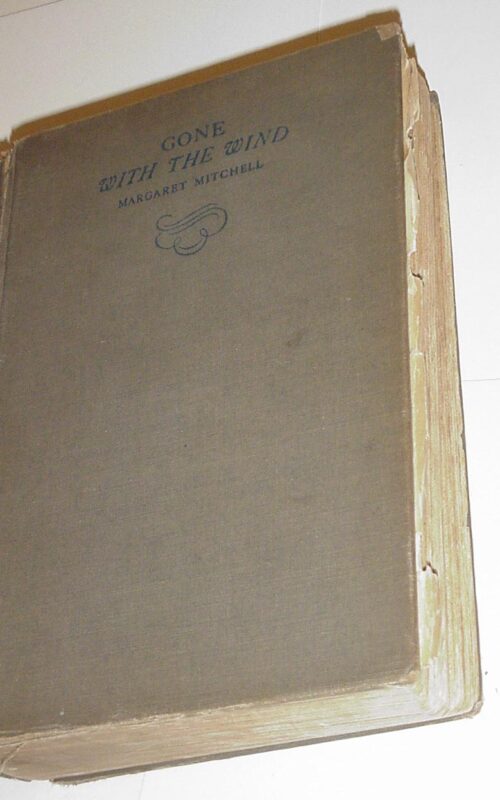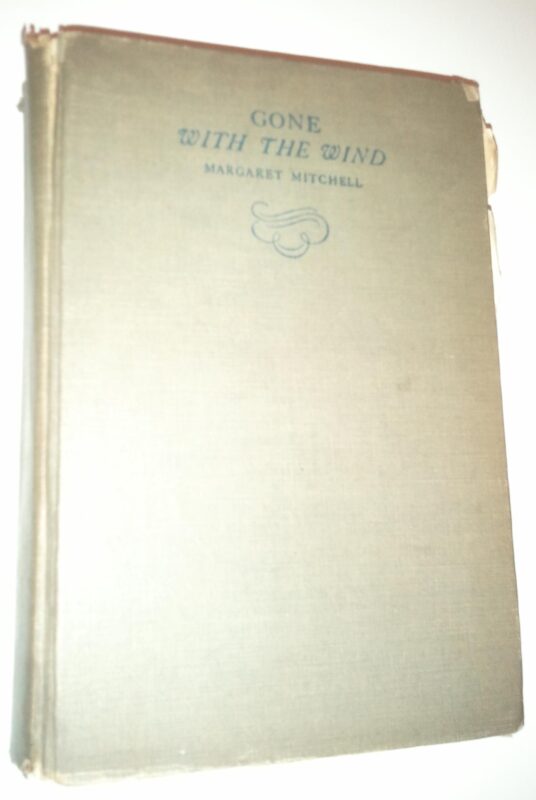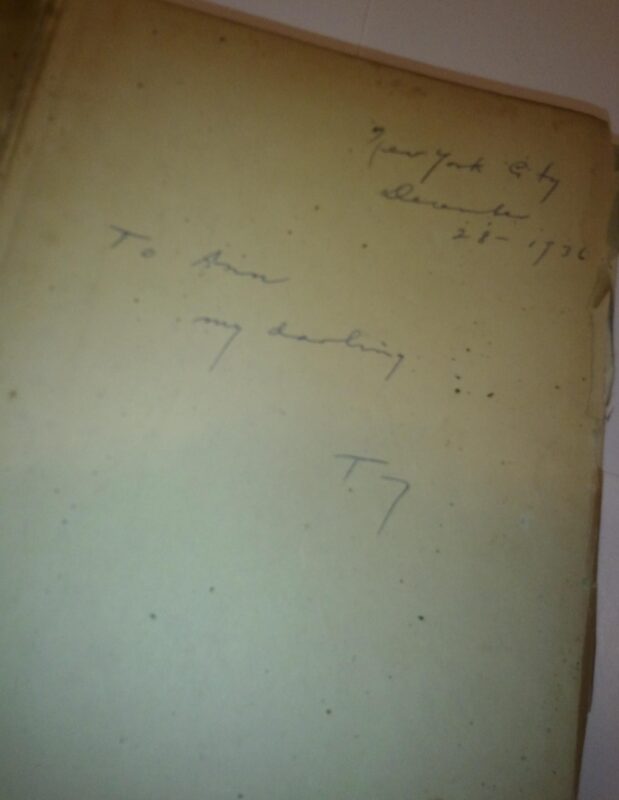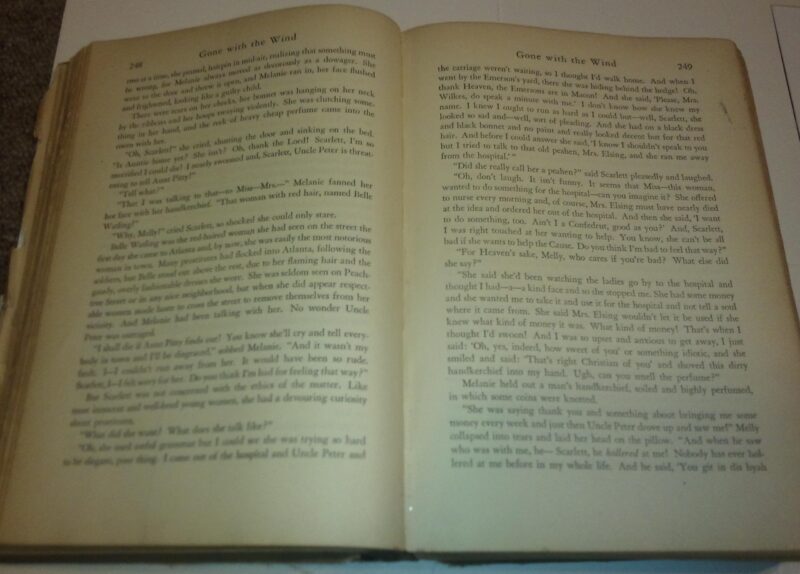Description
Gone with the Wind is an American War & Peace. This is serious literature, which won the Pulitzer prize, no less. Most people don’t see past the epic plot (which isn’t as cut and dried as you may think) or the love story, but this is no less than a successfull attempt to reclaim a discarded culture. It is not about crinoline and lace, it it about the Apocalypse and how losers of the counter-revolution must learn to live in a place where all their politics, personal or civil, are demolished. Scarlett O’Hara is popular because she is an American, driven, materialistic, sentimental and utterly ruthless. Rhett Bulter is the tragic character of this book; the way of life and ideals he disdained are killing him, and he suffers like no one else in this post-apocalyptic landscape. His departure at the end is an act of contrition as much as a romantic failure; he had tried to recreate the materialism of the ante-bellum world, but negeclected the spirituality (such as it is) of men like Ashley Wilkes. Both men, the dreamer and the realist end up alone in a very sterile place. This book is proto-feminist as well. Scarlett survives, even as everything around her dies, but in the end, she too is alone.
Don’t dumb this masterpiece down. The movie fails to capture even a tenth of the depth here. And that awful sequel! Caused by the mistake that this book is some kind of romance novel. This is Art, and you can’t stick a new ending on it, any more than you can a great painting or musical composition.
“Beyond a doubt one of the most remarkable first novels produced by an American writer. It is also one of the best.” — The New York Times
“The best novel to have ever come out of the South…it is unsurpassed in the whole of American writing.” — The Washington Post
“Fascinating and unforgettable! A remarkable book, a spectacular book, a book that will not be forgotten!” — Chicago Tribune
“Gone with the Wind is one of those rare books that we never forget. We read it when we’re young and fall in love with the characters, then we watch the film and read the book again and watch the film again and never get tired of revisiting an era that is the most important in our history. Rhett and Scarlet and Melanie and Ashley and Big Sam and Mammy and Archie the convict are characters who always remain with us, in the same way that Twain’s characters do. No one ever forgets the scene when Scarlet wanders among the wounded in the Atlanta train yard; no one ever forgets the moment Melanie and Scarlet drag the body of the dead Federal soldier down the staircase, a step at a time. Gone with the Wind is an epic story. Anyone who has not read it has missed one of the greatest literary experiences a reader can have.” — James Lee Burke, bestselling author of The Tin Roof Blowdown
“I first read Gone with the Wind in grade school–a boy of the upper South who’d seen the great movie and felt compelled to learn what lay behind it, all thousand-plus pages worth. No page disappointed me. What other American novel surpasses its eagerness to tell a great story of love and war; what characters equal the cantankerous passions of Scarlett and Rhett? Even Scott Fitzgerald spoke well of it. What more could I ask, even seven decades later?” — Reynolds Price
“In my own personal life, I find many similarities to Scarlett’s: The whole 17-inch waist thing notwithstanding, I do love a barbecue, both for the food and the men–I have been known to “eat like a field hand and gobble like a hawg”–I admit that at least on one occasion I may have feigned interest in some guy to further my own interests–I have fought tooth, toenail and tirelessly for my family–I learn slow but I learn good–and even so, I still adore the prospect of dealing with most things…Tomorrow.” — Jill Conner Browne, The Sweet Potato Queen, bestselling author of The Sweet Potato Queens’ First Big-Ass Novel
“In 1936 I was in E.M. Daggett Junior High in Ft. Worth, Texas. By some chance I was able to read Gone with the Wind early on. Then and now, I found it one of the great experiences of a young life. I still list it as one of my 10 favorite books.” — Liz Smith, nationally syndicated columnist
“Not just a great love story, Gone with the Wind is one of the most powerful anti-war novels ever written. Told from the standpoint of the women left behind, author Margaret Mitchell brilliantly illustrates the heartbreaking and devastating effects of war on the land and its people.” — Fannie Flagg, Academy Award nominated-author
“Let’s say you’ve read Gone with the Wind at least twice, and seen the movie over and again. So, here’s a thought. Buy this handsome paperback edition, just for Pat Conroy’s preface. This passionate, nearly breathless love letter is a Song of Solomon to Margaret Mitchell, Scarlett O’Hara, and Conroy’s beautiful, GTW-obsessed mother. Indeed, his luminous preface packs a durable wallop, just like the epic Pulitzer prize-winning work that inspires it.” — Jan Karon, author of The Mitford Years series
“GWTW is an indelible portrait of a unique time and place, American’s greatest political and moral conflict, and the myths that surround it — an all absorbing spectacle of a read even for postmodern readers. Mitchell vividly portrays the disillusionment and devastation of war, the ignorance of the uninitiated, and the transformation of arrogance into tenacity that shaped the first “new South.” All the details of history and place come together as a rich backdrop for those unforgettable characters: shallow and selfish Scarlett, sincere Melanie, moony-eyed Ashley, and the sage, pragmatic, dashing, and rakish Rhett Butler–the most enduring heartthrob of American literature has produced. I’d reread the book for the thrill of Rhett alone!” — Darnell Arnoult, author of Sufficient Grace
“For sheer readability I can think of nothing it must give way before. Miss Mitchell proves herself a staggeringly gifted storyteller.”
–The New Yorker
-Scarlett was partly based on Mitchell herself and her grandmother
-Rhett was based on Mitchell’s first husband Red Upshaw
-the initials JRM in her dedication refer to her second husband John Reginald Marsh
-Margaret Mitchell maintained the only character taken from real life was Prissy the maid
-When asked who she’d like to be in the movie version, Mitchell said ‘Prissy’
-Like a detective novelist, Mitchell wrote the last chapter first and the first chapter last
-GWTW is the only book to sell more copies than the bible
-Mitchell nearly went blind just proofreading the manuscript!
-Mitchell scrupously researched every detail for GWTW, even going to the town register to ensure there was no Rhett Butler or Scarlett O’Hara alive during the Civil War
-The novel took ten years to complete, most of it was written in three
-For style, she endeavoured to make her prose so that a five-year old could read it
-If she were ever to write a sequel, it would be called ‘Back With the Breeze’ On that note,please avoid the Ripley penned sequel ‘Scarlett’, it is atrocious.
Book shows it’s age but binding is still intact. Writing on inside cover: “To Ann, My Darling -T” (my dearly departed neighbors.) I believe this is from one of the late 1936 printings it is not a first printing but was definitely printed in 1936!
Related products
-
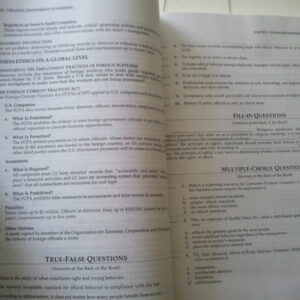
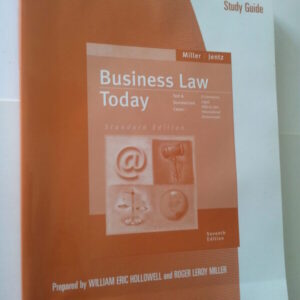
Business Law Today 7th Edition Study Guide SC Hollowell Miller Thomson
$49.99 Add to cart -
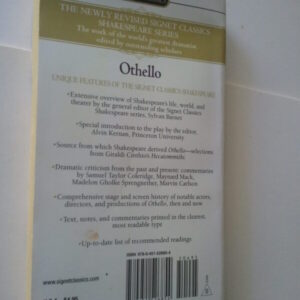
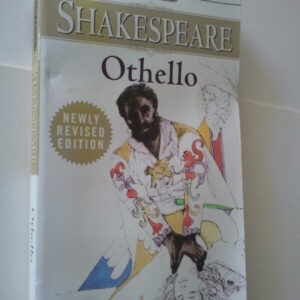
Othello Newly Revised Edition SC Shakespeare Signet Classics Alvin Kernan Critical Essays
$19.99 Add to cart -
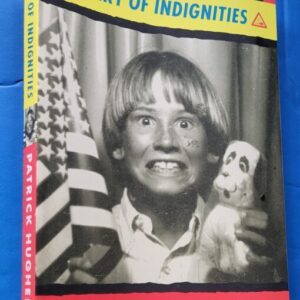
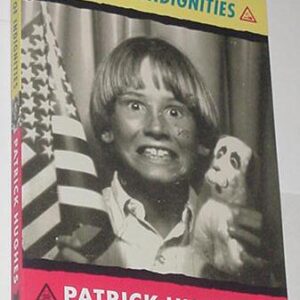
Diary of Indignities TP 1st print M Press Bad News Patrick Hughes Blog
$69.99 Add to cart -

Wake Up You’re a Liberal SC Ted Rall How To Take America Back
$49.99 Add to cart
